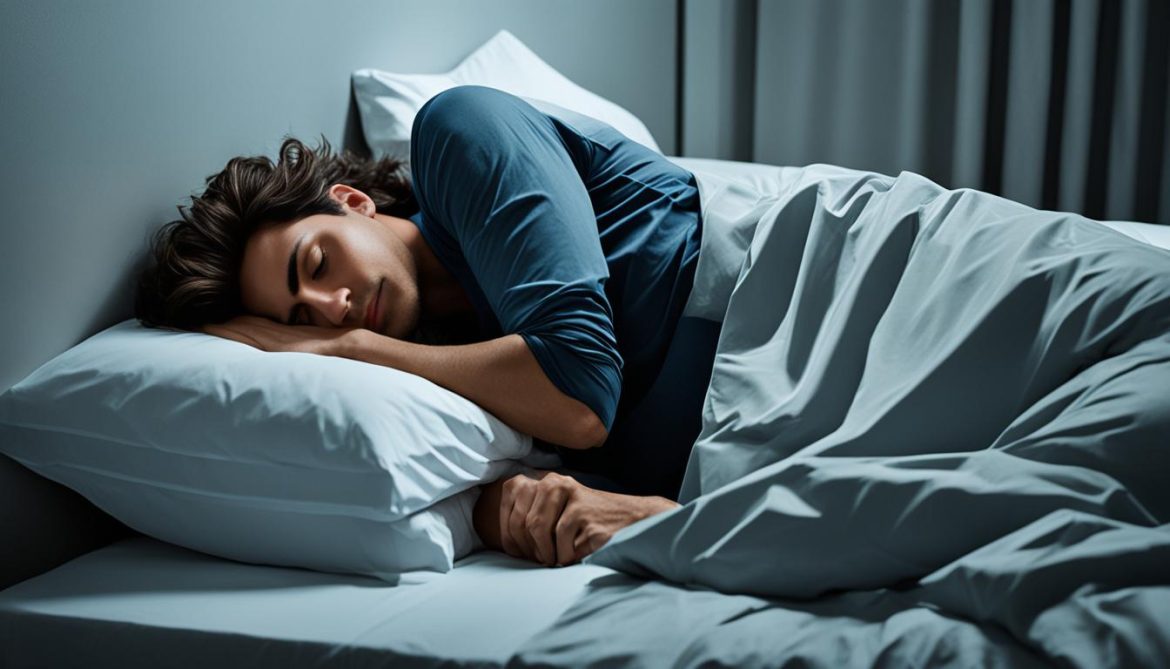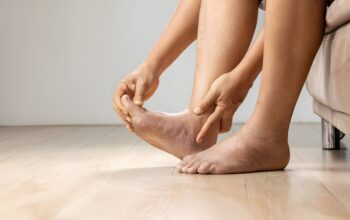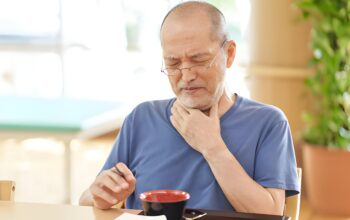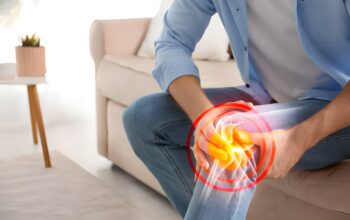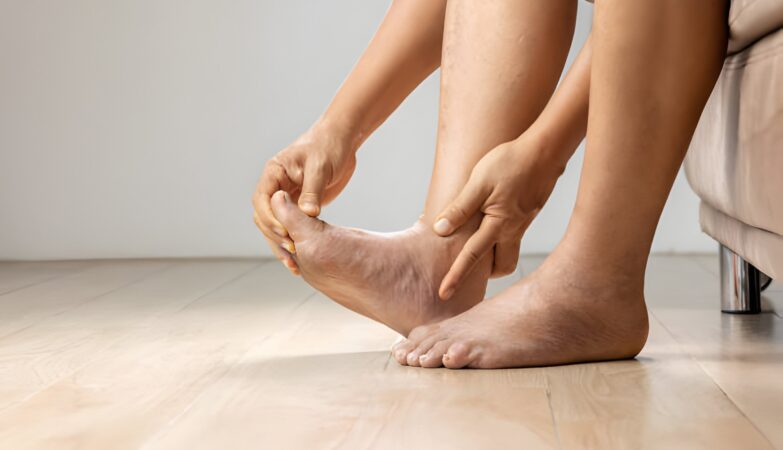Napping is supposed to help you feel better, but sometimes you wake up from a nap with a headache. It can be frustrating and puzzling, leaving you wondering why it happens. In this article, we will explore the causes of post-nap headaches and provide insights on treatment and prevention.
Key Takeaways
- Post-nap headaches can be caused by breathing problems, teeth grinding, pregnancy, or poor sleep hygiene.
- Snoring and sleep apnea can contribute to headaches after napping due to inadequate oxygen supply.
- Teeth grinding during sleep can lead to tension in the jaw muscles and result in headaches upon waking up.
- Pregnancy can cause hormonal changes and dehydration, which may contribute to post-nap headaches.
- Practicing good sleep hygiene and implementing home remedies like using a supportive pillow and relaxation techniques can help prevent and relieve post-nap headaches.
Breathing Problems and Snoring
Snoring can be a sign of breathing problems, including sleep apnea. Sleep apnea is a sleep disorder that is characterized by pauses in breathing during sleep, often accompanied by loud snoring. This condition can lead to various health issues, including headaches after a nap.
Sleep apnea occurs when the muscles in the back of the throat fail to keep the airway open, resulting in a temporary blockage of airflow. As a result, oxygen levels in the body can drop, causing the brain to signal for waking up briefly to restore normal breathing. These frequent awakenings disrupt your sleep cycle and may contribute to the development of headaches.
Common symptoms of sleep apnea include:
- Loud and chronic snoring
- Pauses in breathing during sleep
- Waking up with a choking or gasping sensation
- Excessive daytime sleepiness
- Restless sleep
- Morning headaches
If you experience these symptoms or suspect that you may have sleep apnea, it is essential to consult with a healthcare professional for a proper diagnosis and treatment. Managing sleep apnea through lifestyle changes, such as weight loss, sleeping on your side, avoiding alcohol and sedatives, and using a continuous positive airway pressure (CPAP) machine, can help improve your sleep quality and reduce the frequency of post-nap headaches.
Bruxism (Teeth Grinding)
Bruxism, or teeth grinding, is a common condition that can occur unconsciously during sleep, leading to headaches upon waking up. This habit can also be associated with snoring and sleep apnea, potentially worsening the risk of post-nap headaches. Teeth grinding puts excessive pressure on the jaw muscles, causing tension and discomfort that may contribute to headache development.
Managing bruxism is crucial for alleviating post-nap headaches. There are several effective approaches:
- Relaxation techniques: Engaging in relaxation exercises, such as deep breathing and meditation, can help reduce stress and relieve jaw tension.
- Mouth guard: Wearing a mouth guard or splint during sleep can provide a protective barrier between the upper and lower teeth, preventing grinding and minimizing headache symptoms.
Combining these strategies can significantly improve your bruxism symptoms and reduce the frequency and intensity of post-nap headaches.
| Causes of Bruxism | Symptoms of Bruxism |
|---|---|
|
|
“Teeth grinding can be a bothersome habit that not only impacts your dental health, but also contributes to frequent headaches. By incorporating relaxation techniques and using a mouth guard, you can effectively manage your bruxism, reduce post-nap headaches, and improve your overall well-being.”
Pregnancy
Pregnancy can be a beautiful and transformative experience, but it can also come with its own set of challenges. One common issue that some pregnant individuals may face is experiencing headaches after waking up from a nap. These post-nap headaches during pregnancy can be bothersome and discomforting, but understanding their causes and implementing the right strategies can help manage and prevent them.
Several factors can contribute to post-nap headaches during pregnancy. Hormonal changes are a significant contributor, as fluctuating hormone levels can affect blood vessels in the brain and trigger headaches. Dehydration is another common cause, as pregnant individuals may not be consuming enough fluids to stay adequately hydrated. Low blood sugar levels and congestion can further exacerbate the problem, leading to throbbing headaches.
To manage and prevent post-nap headaches during pregnancy, it is crucial to prioritize hydration. Ensure that you are drinking enough water throughout the day and especially before and after naps. Eating regular, balanced meals and snacks can help stabilize blood sugar levels and reduce the risk of headaches. It may also be beneficial to discuss your symptoms with your obstetrician, as they can provide guidance specific to your pregnancy and offer additional strategies for headache management.

| Causes of Post-Nap Headaches during Pregnancy | Preventive Measures |
|---|---|
| Hormonal changes | Discuss symptoms with an obstetrician Implement stress-management techniques |
| Dehydration | Drink plenty of water throughout the day Avoid caffeinated beverages |
| Low blood sugar levels | Eat regular, balanced meals and snacks Avoid skipping meals |
| Congestion | Use a humidifier to improve air quality Try saline nasal sprays to alleviate congestion |
Sleep Hygiene
Poor sleep hygiene can contribute to post-nap headaches. It’s important to establish healthy habits that promote quality sleep to minimize the risk of headaches. Here are some key factors to consider:
1. Choose the Right Nap Pillow
Your choice of pillow can greatly impact your sleep quality and reduce the risk of headaches. Opt for a pillow that supports both your head and neck in a neutral position to maintain proper spinal alignment. This helps alleviate strain on the muscles and reduces tension headaches.
2. Address Insomnia and Sleep Duration
Insomnia and inadequate sleep can be significant headache triggers, whether they occur at night or after a nap. Strive for a consistent sleep schedule with a sufficient duration to ensure your body receives the rest it needs. Avoid oversleeping, as it can disrupt your natural sleep-wake cycle and lead to headaches.
3. Find the Happy Medium for Sleep
While everyone’s ideal sleep duration may vary, finding a happy medium that works for you is crucial in maintaining good sleep hygiene. Experiment with different sleep durations to determine the amount of sleep that leaves you feeling refreshed and revitalized, without oversleeping or feeling sleep deprived.
4. Identify and Manage Headache Triggers
Understanding your personal headache triggers can help you prevent post-nap headaches. Keep a headache diary to track possible triggers such as certain foods, stress, or environmental factors. Once identified, take steps to avoid or manage these triggers to reduce the frequency of headaches.
5. Practice a Relaxing Nighttime Routine
A relaxing nighttime routine can signal to your body that it’s time to wind down and prepare for sleep. Consider activities such as reading a book, taking a warm bath, or practicing meditation to promote relaxation and improve sleep quality. Avoid stimulating activities, bright screens, and caffeine close to bedtime.
6. Reduce Caffeine Consumption
Caffeine is a stimulant that can interfere with your sleep quality and increase the chances of experiencing headaches. Limit your caffeine intake, especially toward the latter half of the day and in the hours leading up to your nap or bedtime.
7. Incorporate Daily Exercise
Daily physical activity can contribute to better sleep quality and overall well-being. Engaging in regular exercise helps regulate your body’s internal clock and may reduce the likelihood of headaches. Aim for at least 30 minutes of moderate-intensity exercise most days of the week.
| Key Points | Actions |
|---|---|
| Choose a supportive nap pillow | Ensure the pillow supports your head and neck in a neutral position |
| Address insomnia and sleep duration | Establish a consistent sleep schedule and avoid oversleeping |
| Find the happy medium for sleep | Determine the ideal duration that leaves you feeling refreshed |
| Identify and manage headache triggers | Keep a headache diary to track triggers and take necessary precautions |
| Practice a relaxing nighttime routine | Create a calming routine before bed to promote better sleep |
| Reduce caffeine consumption | Avoid caffeine close to your nap or bedtime |
| Incorporate daily exercise | Aim for 30 minutes of moderate-intensity exercise most days |
Taking steps to prioritize sleep hygiene can significantly reduce the likelihood of post-nap headaches. By implementing these habits, you can enjoy better sleep quality and wake up feeling refreshed, free from the discomfort of headaches.
Home Remedies for Post-Nap Headaches
Treating post-nap headaches requires addressing the underlying cause. Fortunately, there are several effective home remedies that can provide relief and help prevent headaches after a nap.
New Pillow
Trying a new pillow can make a significant difference in alleviating post-nap headaches. A pillow that properly supports your head and neck in a neutral position can help reduce tension and discomfort.
Good Sleep Hygiene
Practicing good sleep hygiene is essential for preventing post-nap headaches. This includes establishing a consistent sleep schedule, creating a relaxing bedtime routine, and ensuring your sleep environment is quiet, dark, and comfortable.
Reduced Caffeine Consumption
Caffeine can contribute to headaches, especially after a nap. Limiting your caffeine intake, particularly in the afternoon and evening, can help reduce the likelihood of experiencing a headache after napping.
Daily Exercise
Engaging in regular physical activity has shown to be beneficial for preventing headaches. Exercise helps promote better sleep quality, reduces stress, and improves overall well-being, making it a valuable addition to your routine.
Limit Daytime Naps
While napping can be refreshing, excessive daytime napping or napping for too long can disrupt your sleep cycle and increase the risk of headaches. Limiting your daytime naps to 20-30 minutes can help prevent post-nap headaches.
Relaxation Techniques
Practicing relaxation techniques before bedtime, such as deep breathing exercises, meditation, or gentle stretching, can help promote better sleep quality and reduce the likelihood of experiencing a headache after a nap.
If home remedies do not provide sufficient relief from post-nap headaches or if the headaches worsen, it is advisable to seek medical advice for further evaluation and guidance.
Conclusion
Experiencing a headache after a nap can be frustrating, but understanding the underlying causes can help prevent and manage these post-nap headaches. Dehydration is a common trigger, so staying hydrated throughout the day is important. Poor sleep hygiene, such as using the wrong pillow or napping too much or too little, can also contribute to headaches after sleeping. Taking steps to practice good sleep hygiene, like using a supportive pillow and establishing a relaxing bedtime routine, can make a significant difference.
Teeth grinding, known as bruxism, can lead to tension headaches after waking up from a nap. Managing bruxism through techniques like relaxation exercises and wearing a mouth guard can help alleviate headaches. Additionally, hormonal changes during pregnancy can be a cause of post-nap headaches. Ensuring adequate hydration, regular meals, and discussing any concerns with an obstetrician can help address these headaches during pregnancy.
If you consistently experience headaches after napping, it is recommended to seek medical advice. A healthcare professional can help identify any underlying conditions that may be contributing to the headaches and provide appropriate guidance and treatment options. Remember, prevention is key, and by implementing lifestyle changes and seeking medical advice when necessary, you can find effective solutions for preventing and managing post-nap headaches.
FAQ
Why do I get a headache after taking a nap?
Headaches after napping can be caused by breathing problems, teeth grinding (bruxism), pregnancy, or poor sleep hygiene.
How can breathing problems and snoring contribute to post-nap headaches?
Breathing problems, including sleep apnea, can lead to inadequate oxygen supply, increasing the risk of headaches after a nap. Snoring can be a sign of breathing problems and is often associated with sleep apnea.
Can teeth grinding (bruxism) cause headaches after napping?
Yes, teeth grinding during sleep can lead to tension in the jaw muscles, causing headaches upon waking up. Bruxism can also be related to snoring and sleep apnea.
Why do some pregnant individuals experience headaches after napping?
Pregnancy can cause fatigue and more frequent napping. Factors such as dehydration, low blood sugar, congestion, and hormonal changes can contribute to post-nap headaches during pregnancy.
How does poor sleep hygiene contribute to headaches after napping?
Using the wrong pillow or not getting sufficient sleep can contribute to post-nap headaches. Insomnia and inadequate sleep can also be headache triggers.
What are some home remedies for post-nap headaches?
Home remedies include trying a new pillow, practicing good sleep hygiene, reducing caffeine consumption, daily exercising, limiting daytime naps, and practicing relaxation techniques before bedtime.
What should I do if home remedies for post-nap headaches don’t work?
If home remedies do not relieve your headaches, it is advisable to seek medical advice to identify underlying conditions or concerns.
How can I prevent headaches after napping?
Implementing lifestyle changes such as staying hydrated, practicing good sleep hygiene, managing bruxism, and discussing symptoms with a healthcare professional can help prevent post-nap headaches.
What should I do if my headaches after napping persist or worsen?
If your headaches after napping persist or worsen, it is recommended to seek medical advice to identify any underlying conditions or concerns.

